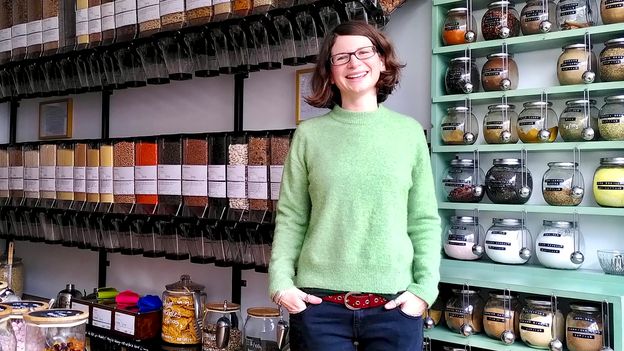
Collect opened in 2019 with the mission to “assist others make the identical adjustments [Gorst’s] household had made” and the viewers one among “mak[ing] low-waste residing made tremendous straightforward for the residents of Peckham”. It hasn’t been straightforward. Gorst constructed the shop “from scratch, actually, with second-hand furnishings and scrap wooden taken from containers” and she or he insists that Collect has survived the pandemic by itself slightly than of doing that. Good.
However “sharing the highs and lows,” whether or not by means of social media or the shop’s long-standing guide membership, made connections that felt deeply “purposeful and significant.” Gorst continues: “The sense of neighborhood is strongest amongst those that store with us, [though]as an alternative of those that observe us on Instagram.”
That is evident from a report revealed in 2020 by Girls’s Put on Each day, #zerowaste was used greater than 4.7 million occasions on Instagram that 12 months, making it one of many quickest rising and most used sustainability-related hashtags on the platform. I ask about this proliferation of traits and tribes, efforts and advocates within the pandemic period, and what Gorst would attribute their attraction to; she theorizes a mixture of people that “have plenty of time on their fingers” [their] fingers to attempt new issues and cement new habits” and “a need to train some management over [their] lives in a tangible, manageable approach.”
Management, it appears, is the important thing. That is value conserving in thoughts as you embark on a sustainability journey. That is learn how to fight local weather nervousness alongside the best way, Gorst says, by “doing no matter [you] feeling in a position to do” and by “taking management of issues [you] can management.”

